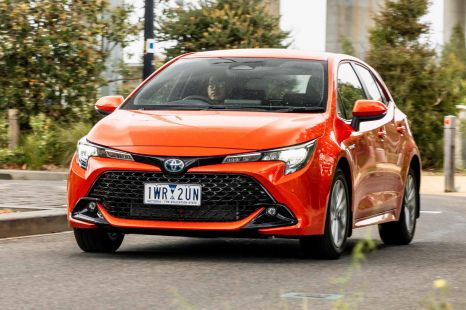

Max Davies
2025 Toyota Corolla SX review
6 Days Ago
Volkswagen has a big year planned for 2024, with the long-awaited introduction of a slew of electric vehicles.

News Editor
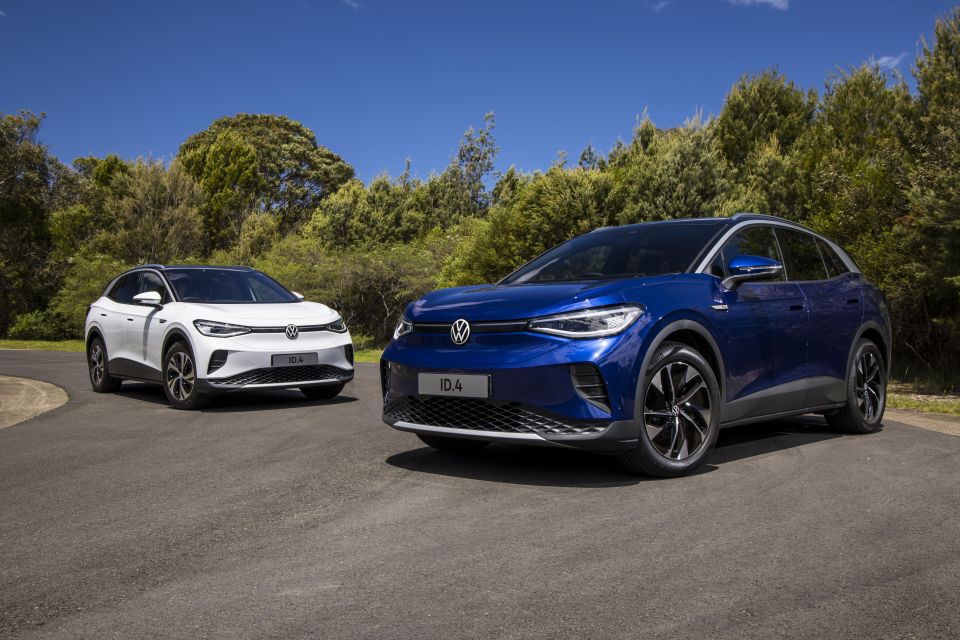

News Editor
Volkswagen Group Australia says 2024 will be one of its biggest years yet in terms of product rollout, and its namesake brand is arguably the biggest beneficiary.
The Volkswagen brand will finally get its first electric vehicles Down Under, and the axing of the Golf and Passat wagons and Arteon liftback and Shooting Brake has helped clear the deck for a slew of new products.
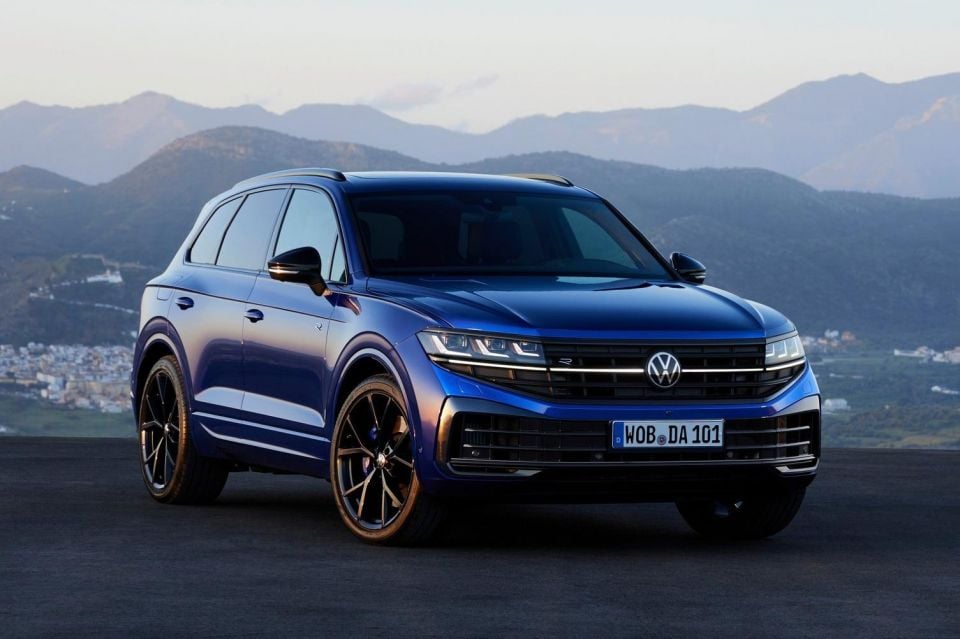
The first cab off the rank is the updated Touareg, set for a March launch.
Volkswagen has flagged, however, it’s still in pricing negotiations with head office for the flagship Touareg R plug-in hybrid it has previously confirmed for our market.
“We need that vehicle to be priced correctly for it to be a success in the Australian market, and the Volkswagen line-up will grow next year… [and] we can’t afford to have models in there that don’t make sense,” said Volkswagen Group Australia product and PR communications manager Daniel DeGasperi.

The R mates a 250kW/400Nm V6 engine with a 14.3kWh lithium-ion battery and a 100kW/400Nm electric motor for total system outputs of 340kW and 700Nm.
Volkswagen claims an electric-only range of 47km on the WLTP cycle, as well as combined-cycle fuel economy of 2.7L/100km and energy consumption of 24.4kWh/100km. It also maintains a 3500kg braked towing capacity.
The rest of the lineup will otherwise carry over, with all models getting freshened styling inside and out.
MORE: 2024 Volkswagen Touareg: Flagship SUV gets fresh look, here next year MORE: Everything Volkswagen Touareg
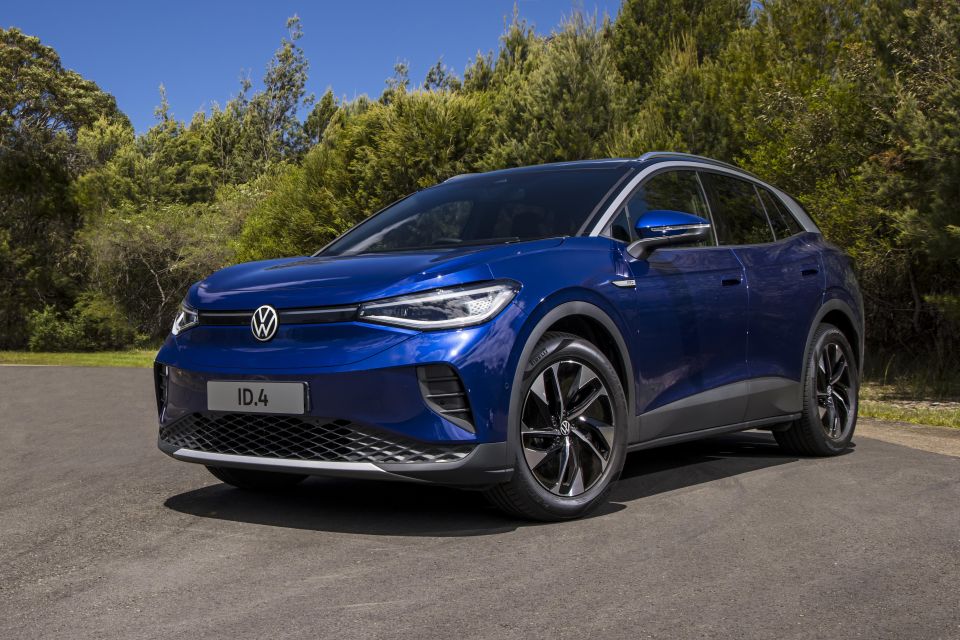
The mid-sized ID.4 electric SUV and its ID.5 coupe SUV counterpart will land by July, and some units could be in dealerships before June 30.
They’ll debut a connected services platform for the brand in Australia.
Volkswagen has confirmed it will offer the SUVs here with a standard 210kW/545Nm single-motor rear-wheel drive powertrain, eschewing the less powerful variants offered in markets like Europe.
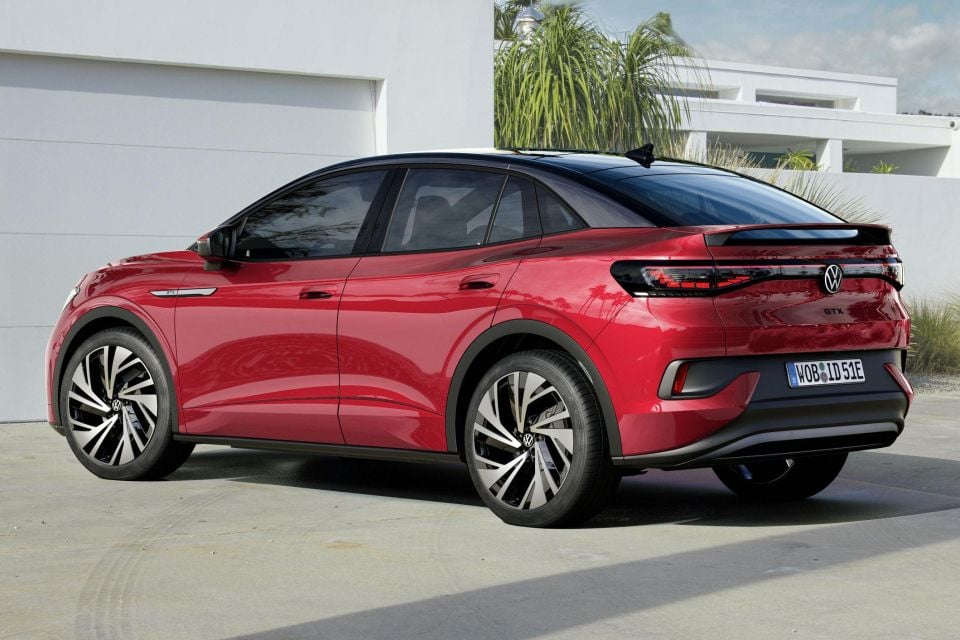
Above it will sit the dual-motor all-wheel drive GTX, which currently produces 220kW of power and offers 479km of range from a 77kWh battery.
Volkswagen says to consider the relationship between the RWD and AWD models as being analogous to that of the Golf GTI and R, so don’t expect a yawning price gap between the two or a significant difference in standard equipment.
The ID.4 RWD will be priced at a similar point to the Tesla Model Y Long Range, currently priced at $80,200 before on-roads.
MORE: Volkswagen is ‘going directly after the Tesla Model Y’ in Australia MORE: Volkswagen electric cars debuting delayed Tesla-style phone app in Australia MORE: Everything Volkswagen ID.4 MORE: Everything Volkswagen ID.5
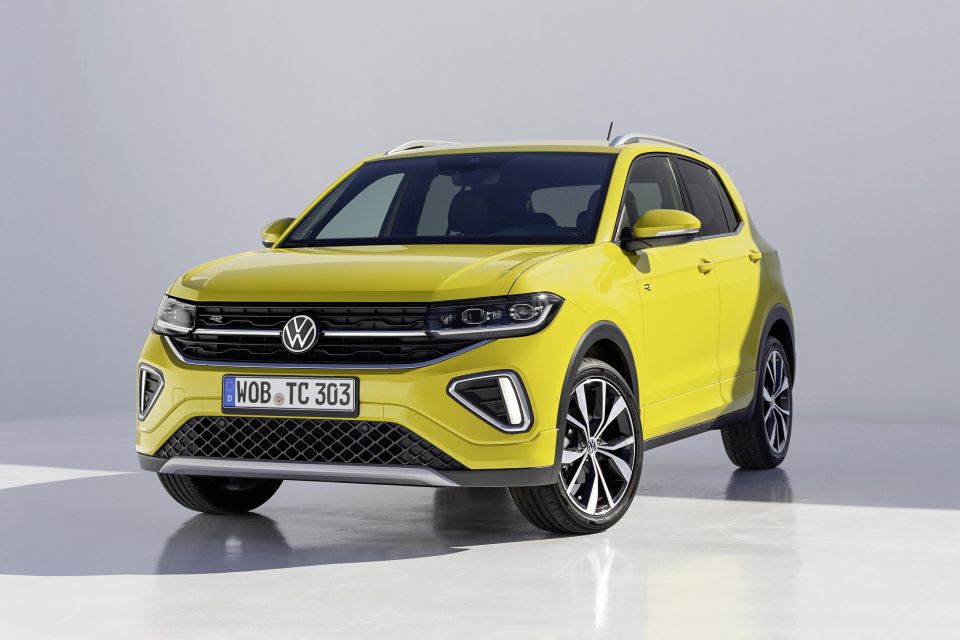
A mid-life update for Volkswagen’s smallest SUV is due in the fourth quarter of 2024.
It’s set to offer a more premium-feeling interior, with a new, soft-touch dash panel, with Style and R-Line models also getting soft-touch front door trims.
A choice of free-standing 8.0- and 9.2-inch touchscreen infotainment systems are available, while a digital instrument cluster is standard across the range. LED headlights are standard, with matrix LED headlights optional.
There are also new colours and wheels, among other cosmetic tweaks. The T-Cross also gains Volkswagen’s Travel Assist Level 2 autonomous driving system.
MORE: When the Volkswagen T-Cross update will hit Australia MORE: Everything Volkswagen T-Cross
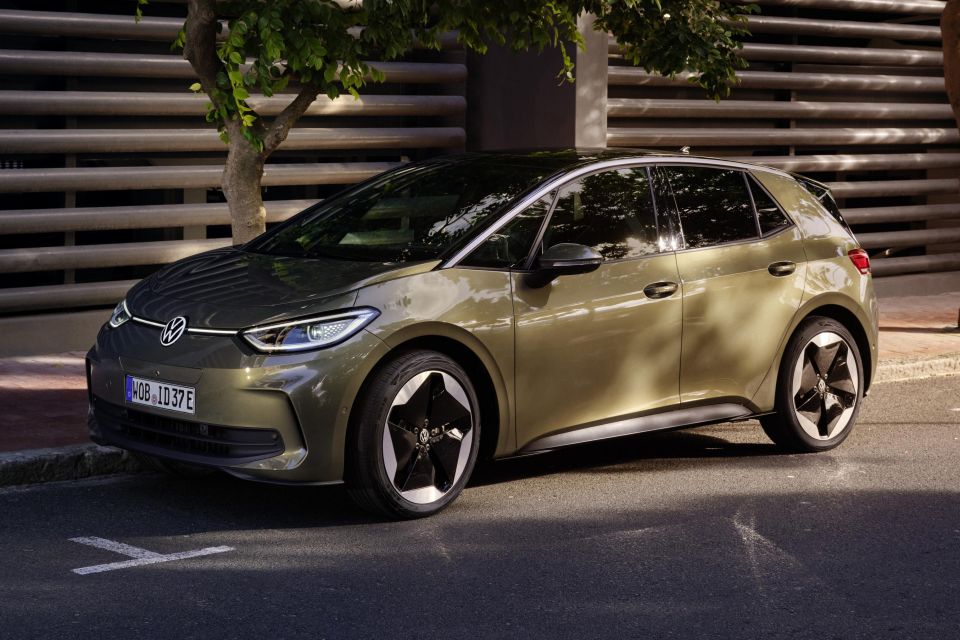
Volkswagen’s facelifted ID.3 hatchback will follow shortly after the ID.4 and ID.5, with which it shares its MEB dedicated electric vehicle underpinnings.
In addition to some minor exterior tweaks like a new front bumper, Volkswagen says it has treated the ID.3 to an interior upgrade with greater use of soft-touch trim. A 12-inch touchscreen infotainment system is now standard.
Volkswagen hasn’t detailed the local ID.3 line-up, other than to confirm we’ll receive the as-yet unrevealed GTX flagship.
The rear-wheel drive ID.3 range offers a choice of 58kWh and 77kWh batteries. The former offers 426km of range and 120kW DC charging, while the latter offers 546km and 170kW charging. In Pro guise, the ID.3 pumps out 150kW and 310Nm.
MORE: Updated VW ID.3 EV firming for 2024 Aussie launch MORE: Everything Volkswagen ID.3
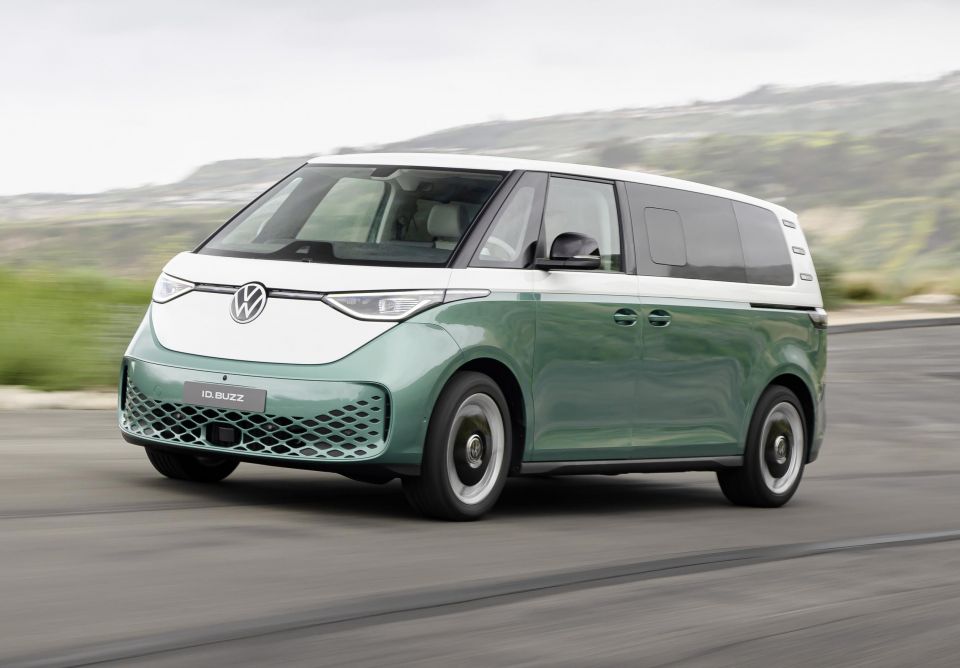
Volkswagen’s electric Kombi is due here late in 2024, in both people mover (ID. Buzz) and load-carrying (ID. Buzz Cargo) guises.
The company will allow buyers to register their interest starting this October.
The local lineup hasn’t been confirmed yet, but Volkswagen will offer two different lengths globally. The long-wheelbase people mover adds a third row of seats and all-wheel drive, and the company has previously said bringing it here is a “no brainer”.
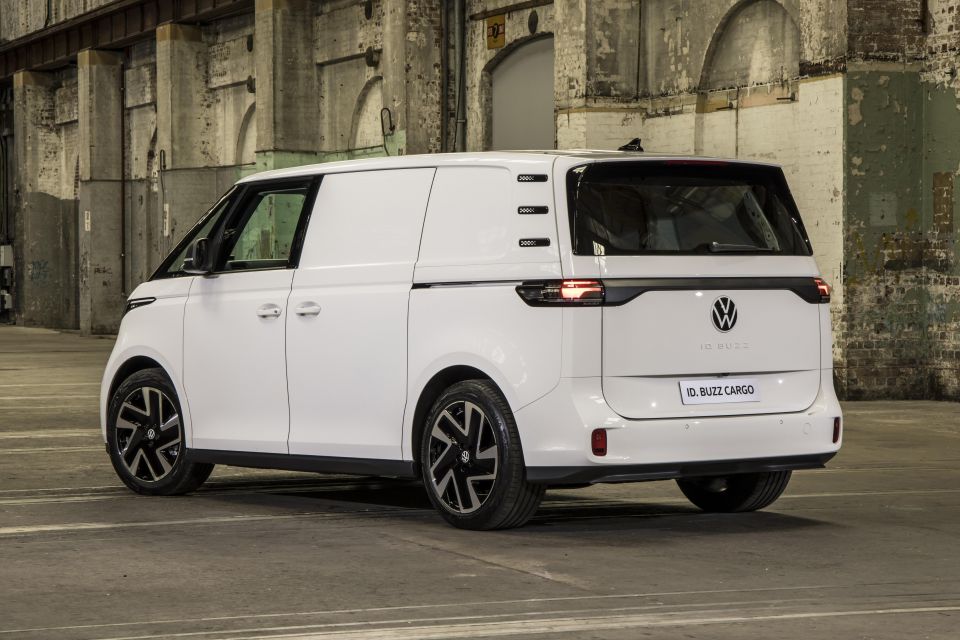
Currently, all ID. Buzz and ID. Buzz Cargo short-wheelbase models are rear-wheel drive and use a 77kWh (net) lithium-ion battery and a single, rear-mounted electric motor with 150kW of power and 310Nm of torque.
Range is up to 425km on the WLTP cycle and it can be charged at up to 11kW using AC power or 170kW on a DC fast charger.
The long-wheelbase model has an extra 250mm between the wheels and measures 4962mm long overall, while also gaining an 85kWh battery pack and a more powerful 210kW rear motor.
Volkswagen has also confirmed a dual-motor all-wheel drive GTX, producing 220kW in the SWB and 250kW in the LWB.
MORE: How to register your interest for the electric Volkswagen ID. Buzz in Australia MORE: Everything Volkswagen ID. Buzz
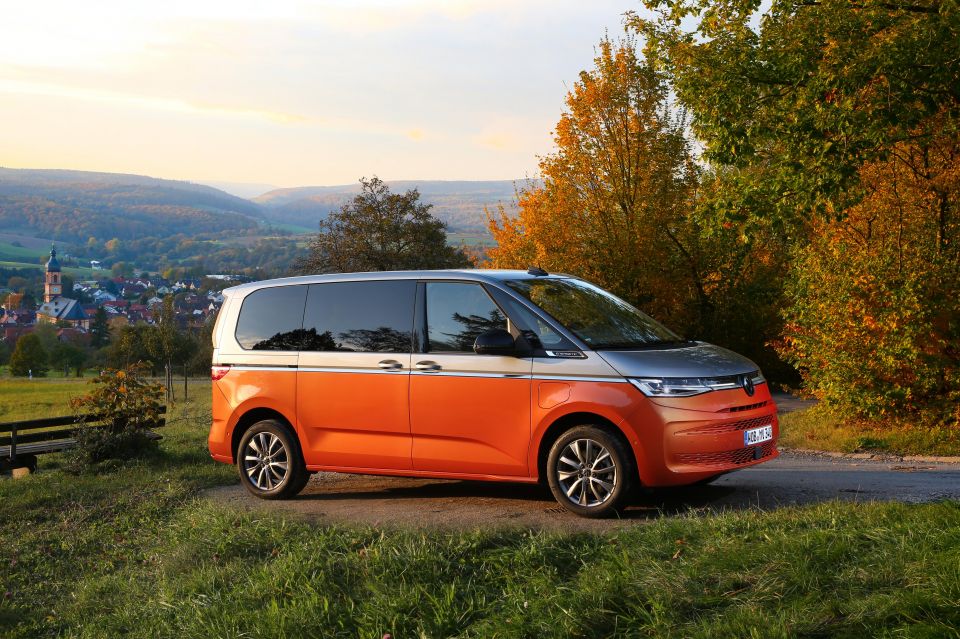
The T7 Multivan will arrive late in 2024 with a couple of diesel engines, including a 110kW/360Nm base mill, though Volkswagen says it’s still working on finalising the lineup.
Volkswagen says the Multivan will complement the electric ID. Buzz in much the same way the Tiguan and ID.4 will complement each other. The company has previously confirmed production of the T6.1 Multivan and Caravelle will run until the end of this year.
With the T7 generation, the Multivan has diverged from the Transporter. Instead of being based on the cargo van, it uses the MQB architecture used by myriad VW passenger cars and SUVs.
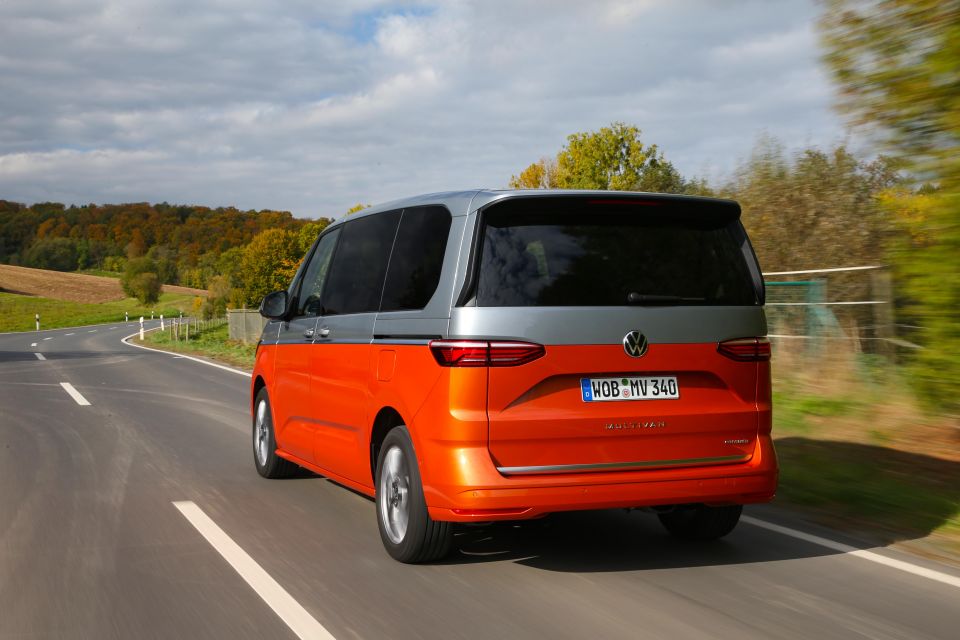
The next Transporter, in contrast, will be manufactured by Ford Otosan, Ford’s joint venture in Turkey, alongside the next-generation Transit Custom.
Measuring 4973mm long, 1941mm wide, up to 1903mm tall, and riding on a 3124mm wheelbase, the T7 Multivan should have plenty of space for seven passengers and all their gear.
Even with all three seating rows in place the Multivan has 469 litres of luggage space. Folding down the last row allows the car to carry 1850L of stuff. Removing the second row entirely boosts capacity to 3672L.
An extended-length model measuring 5173mm long is also available. This variant can carry up to 4053L with only the front row in place.
MORE: Volkswagen T7 Multivan, next-gen Transporter set for 2024 launch MORE: Everything Volkswagen Multivan
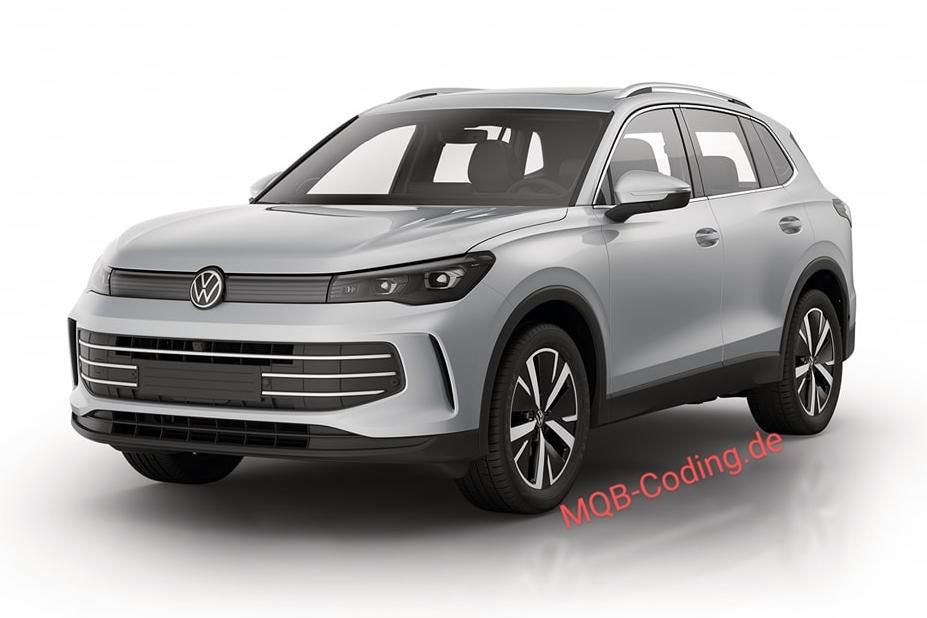
Volkswagen has confirmed production of the Tiguan for our market will begin late in 2024, with a launch within six months of production starting.
That points to an early 2025 launch in Australia.
Volkswagen has ruled out a plug-in hybrid option for our market despite having previously confirmed it, and has also said the “Tiguan in turbo-petrol form and ID.4 in fully electric [form]” will make for a “great duo”. That appears to cast doubt on diesel Tiguans returning, despite the continued availability of these in other markets.
The company has teased the vehicle extensively and leaked images have also surfaced.
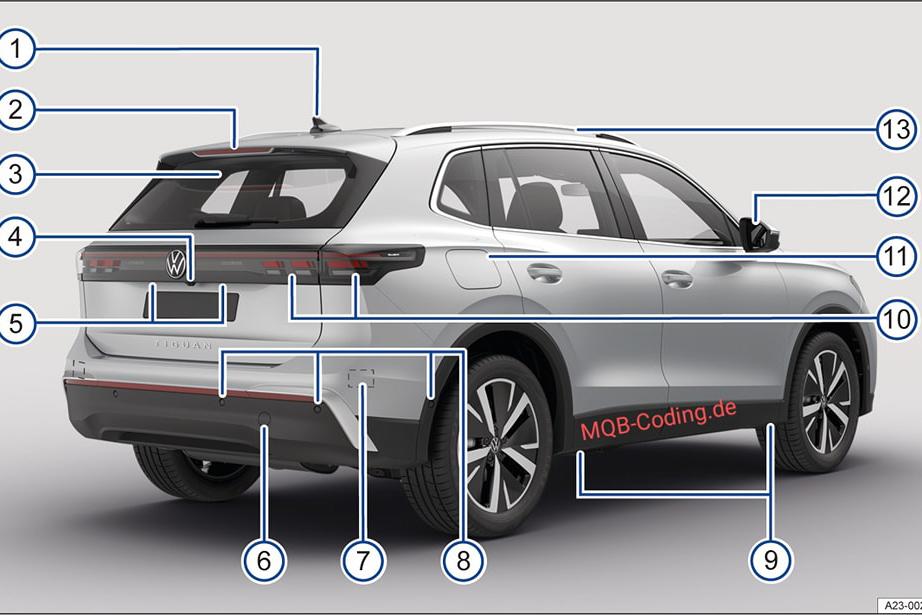
It has more curvaceous styling than the current car, while Volkswagen promises a more premium cabin with more sound deadening, a free-standing touchscreen that measures up to 15 inches diagonally, and seats with available heating, cooling and massaging functionality.
It rides the MQB Evo architecture underpinning vehicles like the Golf.
Measuring 4551mm long, 1939mm wide, and riding on a 2681mm wheelbase, the third-generation Tiguan is 32mm longer than today’s SWB model, but shares that car’s width and wheelbase. The current, longer Tiguan Allspace is expected to be replaced by a new version of the curently China-exclusive Tayron.
MORE: Volkswagen won’t offer plug-in hybrid or diesel Tiguan in Australia MORE: Everything Volkswagen Tiguan
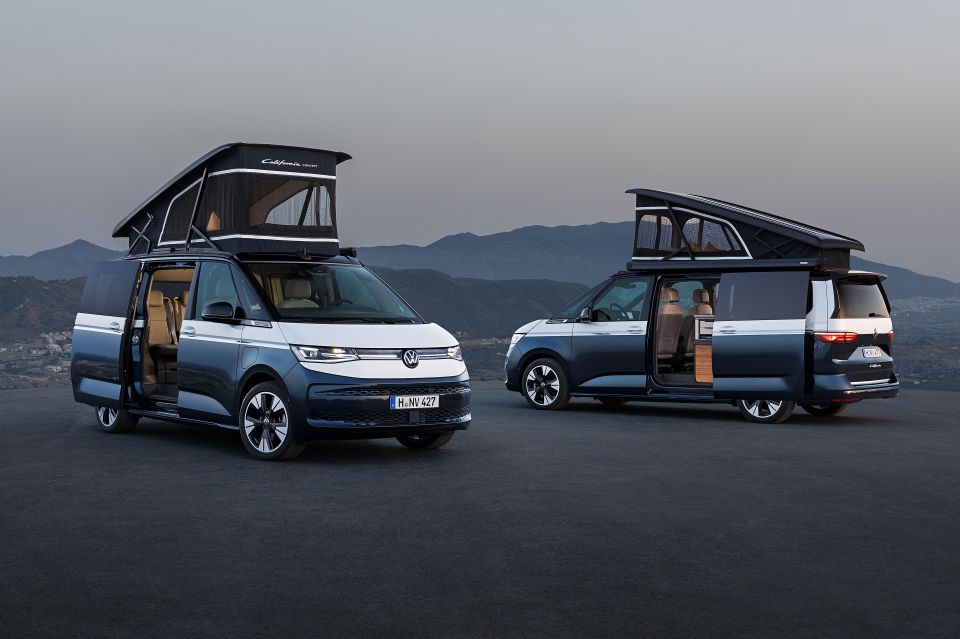
The next-generation California has thus far been revealed only in concept form with a plug-in hybrid powertrain, however the company has said it will be available with “all drive systems of the Multivan” it’s based on – indicating a choice of petrol, diesel and plug-in hybrid power.
The production model has had “significant input” from Australia, as the existing T6.1 model had some “challenges” meeting Australian Design Rules – particularly surrounding its kitchen.
CarExpert understands the California will arrive in 2025, and local pricing and specifications haven’t been finalised.
The new California features sliding doors on both sides of the vehicle, a first for the nameplate.
MORE: Volkswagen California concept plugs in for electrified adventures
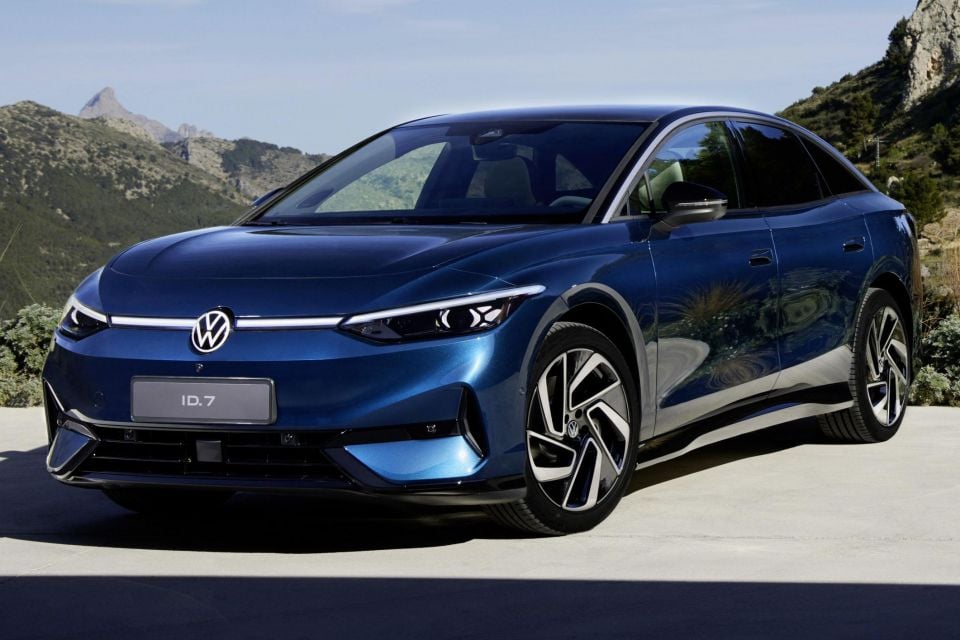
Don’t expect the Volkswagen brand’s new flagship electric passenger car to make its way here anytime soon.
“I think there’ll be particular markets that are prioritised for ID.7 – China and Europe in particular – but further down, that car will have a lifecycle,” said Mr DeGasperi.
“So further down the track we may look at that. We may also analyse whether people are buying in Australia sedan EVs because of the absence of SUVs, so that’s a trend we need to have a look at.”
The MEB-based ID.7 is launching initially as a liftback with a 210kW/545Nm single-motor rear-wheel drive powertrain. A wagon will follow to complement the combustion-powered Passat wagon, which won’t be coming here.
Where expert car reviews meet expert car buying – CarExpert gives you trusted advice, personalised service and real savings on your next new car.
William Stopford is an automotive journalist based in Brisbane, Australia. William is a Business/Journalism graduate from the Queensland University of Technology who loves to travel, briefly lived in the US, and has a particular interest in the American car industry.


Max Davies
6 Days Ago
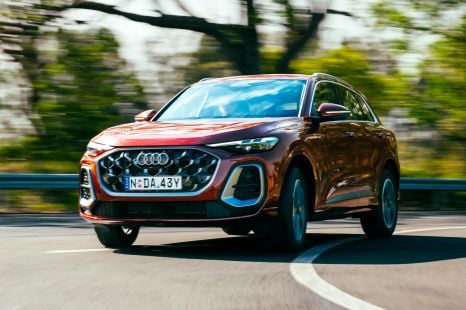

James Wong
5 Days Ago
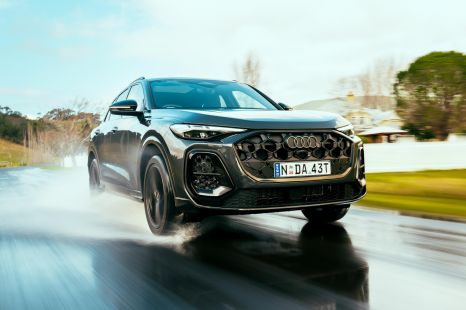

James Wong
4 Days Ago
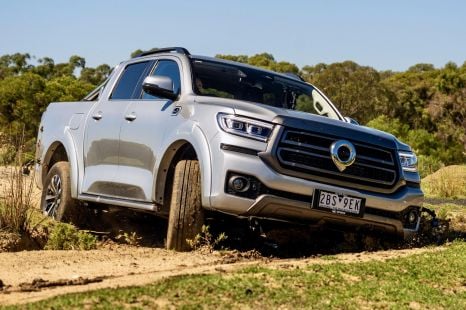

Max Davies
3 Days Ago
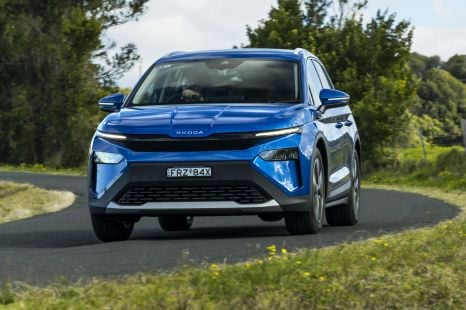

Josh Nevett
1 Day Ago
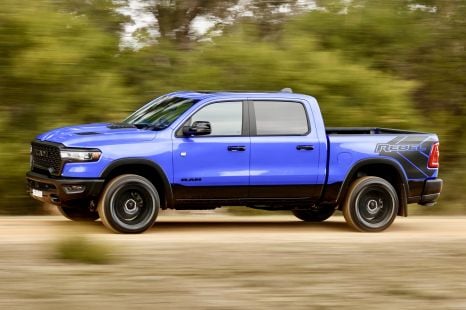

Max Davies
1 Day Ago